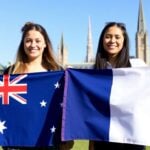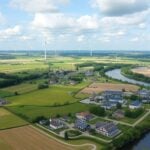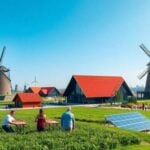Fellowship applications represent a pivotal opportunity for individuals seeking to advance their academic and professional careers. These programs often provide not only financial support but also invaluable networking opportunities, mentorship, and resources that can significantly enhance one’s research capabilities. As the competition for fellowships intensifies, understanding the nuances of crafting a compelling application becomes essential.
A well-prepared application can set candidates apart, showcasing their unique qualifications and vision for their proposed research. The process of applying for a fellowship can be daunting, but it is also an exciting chance to articulate one’s aspirations and demonstrate the potential for meaningful contributions to a field. This article aims to guide prospective applicants through the critical components of a successful fellowship application, offering actionable tips and real-world examples that can help elevate their proposals.
By focusing on key areas such as identifying research goals, articulating significance, and aligning with fellowship missions, candidates can create a robust application that resonates with selection committees.
Identifying Research Goals
The first step in crafting a successful fellowship application is to clearly identify your research goals. This involves not only defining what you want to study but also understanding why it matters. A well-defined research goal serves as the foundation of your proposal, guiding the direction of your project and informing every aspect of your application.
Take the time to reflect on your interests, experiences, and the gaps in existing literature that you wish to address. This introspection will help you articulate a focused and compelling research question. For instance, consider a graduate student interested in environmental science.
Instead of broadly stating an interest in climate change, they might refine their focus to investigate the impact of urban green spaces on local biodiversity. This specificity not only clarifies their research direction but also makes it easier for reviewers to understand the scope and significance of their work. By honing in on precise research goals, applicants can create a narrative that is both engaging and informative, setting the stage for a strong proposal.
Articulating the Significance of Research Goals
Once research goals are identified, the next step is to articulate their significance. This involves explaining why your research matters and how it contributes to the broader field or society at large. A compelling narrative about the importance of your work can captivate reviewers and make your application stand out.
Consider framing your research within the context of current challenges or advancements in your field, demonstrating how your work addresses pressing issues or fills critical gaps in knowledge. For example, if your research goal is to explore innovative methods for renewable energy production, you might discuss the urgent need for sustainable energy solutions in light of climate change. By connecting your research to real-world implications, you not only highlight its relevance but also engage potential funders who are invested in supporting impactful work.
Remember that reviewers are often looking for projects that promise to advance knowledge or provide tangible benefits; thus, clearly articulating significance is crucial for garnering their support.
Aligning Research Goals with Fellowship Mission
A successful fellowship application must demonstrate alignment between your research goals and the mission of the fellowship program. Each fellowship has its own set of values, objectives, and areas of focus; understanding these elements is essential for tailoring your proposal effectively. Take the time to thoroughly research the fellowship’s mission statement and past funded projects to identify common themes and priorities.
For instance, if you are applying for a fellowship that emphasizes social justice and community engagement, ensure that your research goals reflect these values. You might frame your project as not only an academic pursuit but also as a means to empower marginalized communities through participatory research methods. By explicitly connecting your goals with the fellowship’s mission, you enhance your chances of being viewed as a suitable candidate who embodies the program’s ideals.
Demonstrating Research Experience and Expertise
In addition to clearly defined goals and alignment with fellowship missions, demonstrating relevant research experience and expertise is vital for a successful application. Reviewers want to see that you possess the skills and knowledge necessary to carry out your proposed project effectively. This can include previous research experience, relevant coursework, publications, or presentations at conferences.
Highlighting these accomplishments not only showcases your qualifications but also builds credibility for your proposed work. For example, if you have conducted fieldwork related to your research goals or have collaborated on projects with established researchers in your field, be sure to include these experiences in your application. Providing specific examples of past successes can illustrate your capability and commitment to your research area.
Additionally, consider including letters of recommendation from mentors or colleagues who can speak to your expertise and potential as a researcher; these endorsements can significantly bolster your application.
Outlining a Clear Research Plan
A clear and detailed research plan is a cornerstone of any successful fellowship application. This plan should outline the methodology you intend to use, the timeline for completing various phases of your project, and any resources or collaborations you will need to achieve your goals. A well-structured plan not only demonstrates your preparedness but also reassures reviewers that you have thought critically about how to execute your project.
When crafting your research plan, consider using a timeline or flowchart to visually represent key milestones and deliverables. For instance, if you are conducting a longitudinal study, outline how you will collect data at different intervals and analyze it over time. Additionally, be transparent about potential challenges you may face and how you plan to address them; this level of foresight can further strengthen your proposal by showing that you are proactive and adaptable.
Emphasizing the Potential Impact of Research Goals
Finally, it is essential to emphasize the potential impact of your research goals within your fellowship application. Reviewers are often interested in projects that promise significant contributions to knowledge or practice within a field. Articulating the broader implications of your work can help position it as not just an academic exercise but as a catalyst for change or innovation.
For example, if your research aims to develop new educational strategies for underprivileged youth, discuss how these strategies could improve educational outcomes and contribute to social equity. Highlighting potential applications or benefits of your work can resonate with reviewers who are looking for projects that align with their funding priorities. By painting a vivid picture of how your research could influence policy, practice, or future studies, you enhance its appeal and relevance.
Conclusion and Final Tips for Successful Fellowship Applications
In conclusion, crafting a successful fellowship application requires careful consideration of several key components: identifying clear research goals, articulating their significance, aligning them with fellowship missions, demonstrating relevant experience, outlining a detailed research plan, and emphasizing potential impact. By focusing on these areas, applicants can create compelling narratives that resonate with selection committees. As you prepare your application, remember to seek feedback from mentors or peers who can provide constructive criticism and insights into improving your proposal.
Additionally, pay close attention to formatting guidelines and submission requirements; adhering to these details reflects professionalism and respect for the review process. Finally, allow ample time for revisions—great proposals are often the result of multiple drafts and thoughtful refinement. By following these actionable tips and strategies, individuals seeking fellowships can enhance their chances of success in securing funding for their research endeavors.
With dedication and careful planning, applicants can transform their ideas into impactful projects that contribute meaningfully to their fields and society at large.


























